About the experts (in alphabetic order by last name):
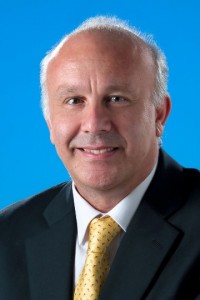 Jospeh Agius, Ed.D., is a Speech Language Pathologist with special interest in fluency disorders and humour research. As partner expert nominated by the University of Malta, Dr. Agius collaborates with experts from thirteen European Universities and two centres of excellence on the development and delivery of the ‘European Clinical Specialization Course in Fluency Disorders’. He is Senior Practitioner of the Speech Language Department and employed by the Health Division, Government of Malta. Dr. Agius is visiting senior lecturer at the University of Malta lecturing on ‘Fluency Disorders’, ‘Language and Psychiatry’, ‘Creativity, Humour and Communication’ and ‘Legal and Ethical Issues’. He is a member on the Fluency Committee of the International Association of Logopedics and Phoniatrics (IALP). He is author of the iOS application ‘Fluency SIS’ – Smart Intervention Strategy for school- age children who stutter. Jospeh Agius, Ed.D., is a Speech Language Pathologist with special interest in fluency disorders and humour research. As partner expert nominated by the University of Malta, Dr. Agius collaborates with experts from thirteen European Universities and two centres of excellence on the development and delivery of the ‘European Clinical Specialization Course in Fluency Disorders’. He is Senior Practitioner of the Speech Language Department and employed by the Health Division, Government of Malta. Dr. Agius is visiting senior lecturer at the University of Malta lecturing on ‘Fluency Disorders’, ‘Language and Psychiatry’, ‘Creativity, Humour and Communication’ and ‘Legal and Ethical Issues’. He is a member on the Fluency Committee of the International Association of Logopedics and Phoniatrics (IALP). He is author of the iOS application ‘Fluency SIS’ – Smart Intervention Strategy for school- age children who stutter. |
 Nancy Barcal, M.A., CCC-SLP, is the Founding Director of Granite Bay Speech and has over 32 years experience treating individuals who stutter and clutter. Nancy received her Bachelor’s Degree from Bradley University (Peoria, Illinois) and her Master’s Degree from Northern Illinois University (DeKalb, Illinois). The National Stuttering Association (NSA) recognized her as the 2009 Chapter Leader of the Year. Nancy has been an active member of the NSA since 1983. She is a member of ASHA’s Fluency and Fluency Disorders Special Interest Group. Nancy is a frequent guest speaker on the subject of fluency disorders and counseling techniques at Northern California school districts and hospitals, as well as, at Sacramento State University (Sacramento, California). She recently presented, “Providing the Best Care for Your Client Who Stutters” at the National Student Speech and Hearing Association Conference in Sacramento, California. Nancy has provided clinical guidelines to insurance companies for insurance approval procedures. She has worked in home health, schools and hospitals as well as private practice. Nancy works with the Roseville Theatre Group to provide opportunities for stutters to volunteer in the theatre for generalization of techniques. She is passionate about increasing awareness of fluency disorders. Nancy Barcal, M.A., CCC-SLP, is the Founding Director of Granite Bay Speech and has over 32 years experience treating individuals who stutter and clutter. Nancy received her Bachelor’s Degree from Bradley University (Peoria, Illinois) and her Master’s Degree from Northern Illinois University (DeKalb, Illinois). The National Stuttering Association (NSA) recognized her as the 2009 Chapter Leader of the Year. Nancy has been an active member of the NSA since 1983. She is a member of ASHA’s Fluency and Fluency Disorders Special Interest Group. Nancy is a frequent guest speaker on the subject of fluency disorders and counseling techniques at Northern California school districts and hospitals, as well as, at Sacramento State University (Sacramento, California). She recently presented, “Providing the Best Care for Your Client Who Stutters” at the National Student Speech and Hearing Association Conference in Sacramento, California. Nancy has provided clinical guidelines to insurance companies for insurance approval procedures. She has worked in home health, schools and hospitals as well as private practice. Nancy works with the Roseville Theatre Group to provide opportunities for stutters to volunteer in the theatre for generalization of techniques. She is passionate about increasing awareness of fluency disorders. |
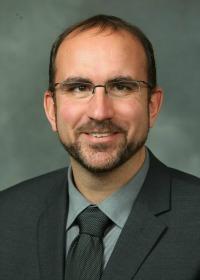 Dr. Deryk Beal is a speech-language pathologist, the Executive Director of ISTAR and an Assistant Professor in the Department of Speech Pathology and Audiology at the University of Alberta. Deryk earned his master’s degree and completed his clinical training at the University of Toronto. He has maintained a clinical practice focused on the assessment and treatment of stuttering and other motor speech disorders for over 12 years. He is a dedicated therapist who is intensely passionate about the creation and utilization of evidence for the continued improvement of assessment and treatment services for children, teens and adults who stutter as well as people with motor speech disorders. Deryk received his doctoral degree at the University of Toronto where he was the recipient of the prestigious Clinician-Scientist Training Fellowship from the Hospital for Sick Children. He was recruited to ISTAR and the University of Alberta from the world renowned Sargent College of Health and Rehabilitation Sciences Speech Laboratory at Boston University where he was a Canadian Institutes of Health Research Clinical Research Fellow. While in Boston, Deryk was also appointed as a research affiliate with the RLE Speech Communication Group at the Massachusetts Institute for Technology and conducted neuroimaging research at the Martinos Center for Biomedical Imaging at Massachusetts General Hospital. Deryk is a clinician-scientist whose research aims to further the understanding of the brain’s role in learning, planning and controlling speech production and how the brain differs in children, teens and adults with disordered speech production. His research program is designed for the express purpose of developing novel treatments for stuttering and other childhood brain-based speech and language disorders that persist across the lifespan. Dr. Deryk Beal is a speech-language pathologist, the Executive Director of ISTAR and an Assistant Professor in the Department of Speech Pathology and Audiology at the University of Alberta. Deryk earned his master’s degree and completed his clinical training at the University of Toronto. He has maintained a clinical practice focused on the assessment and treatment of stuttering and other motor speech disorders for over 12 years. He is a dedicated therapist who is intensely passionate about the creation and utilization of evidence for the continued improvement of assessment and treatment services for children, teens and adults who stutter as well as people with motor speech disorders. Deryk received his doctoral degree at the University of Toronto where he was the recipient of the prestigious Clinician-Scientist Training Fellowship from the Hospital for Sick Children. He was recruited to ISTAR and the University of Alberta from the world renowned Sargent College of Health and Rehabilitation Sciences Speech Laboratory at Boston University where he was a Canadian Institutes of Health Research Clinical Research Fellow. While in Boston, Deryk was also appointed as a research affiliate with the RLE Speech Communication Group at the Massachusetts Institute for Technology and conducted neuroimaging research at the Martinos Center for Biomedical Imaging at Massachusetts General Hospital. Deryk is a clinician-scientist whose research aims to further the understanding of the brain’s role in learning, planning and controlling speech production and how the brain differs in children, teens and adults with disordered speech production. His research program is designed for the express purpose of developing novel treatments for stuttering and other childhood brain-based speech and language disorders that persist across the lifespan. |
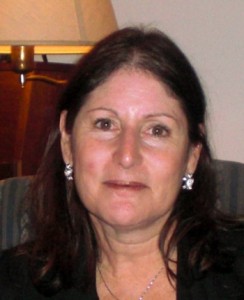 Nan Bernstein Ratner is Professor and Chairman, Department of Hearing and Speech Sciences, University of Maryland, College Park. Her primary areas of research are fluency development and disorder, psycholinguistics and the role of adult input and interaction in child language development. The author of numerous research articles, chapters and edited texts, she is the co-author of A Handbook on Stuttering (6th ed) with the late Oliver Bloodstein, as well as The Development of Language (7th ed) and Psycholinguistics (2nd ed.), both with Jean Berko Gleason. In 2006, Professor Bernstein Ratner received the Distinguished Researcher award from the International Fluency Association. Nan Bernstein Ratner is Professor and Chairman, Department of Hearing and Speech Sciences, University of Maryland, College Park. Her primary areas of research are fluency development and disorder, psycholinguistics and the role of adult input and interaction in child language development. The author of numerous research articles, chapters and edited texts, she is the co-author of A Handbook on Stuttering (6th ed) with the late Oliver Bloodstein, as well as The Development of Language (7th ed) and Psycholinguistics (2nd ed.), both with Jean Berko Gleason. In 2006, Professor Bernstein Ratner received the Distinguished Researcher award from the International Fluency Association. |
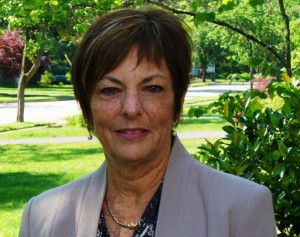 Barbara Dahm SLP-CCC is a Board Recognized Specialist in Fluency Disorders. She is the director of Communication Therapy Institute, a clinic that specializes in the treatment of stuttering. Ms Dahm has extensive experience working with children and adults who stutter in both group and individual settings. Since 1987, she has been involved with the treatment of nearly 2000 people who stutter. Today there are branches of CTI in Israel, USA and via Online Therapy. She is a member of the Association of Israeli Communication Clinicians, a founding member of the International Fluency Association, a member of ASHA Special Interest Group in Fluency and Fluency Disorders and a member of several self-help groups for people who stutter. She received her degrees from Boston University and has over 40 years of experience as a speech pathologist. While treating people who stutter, she discovered the benefits of the speech processing approach to therapy. She authored Generating Fluent Speech: A Comprehensive Speech Processing Approach (1997) and Dynamic Stuttering Therapy (2007). She has presented her approach to professionals and people who stutter in The Netherlands, England, Germany, Denmark, Canada, Israel and the USA. Barbara Dahm SLP-CCC is a Board Recognized Specialist in Fluency Disorders. She is the director of Communication Therapy Institute, a clinic that specializes in the treatment of stuttering. Ms Dahm has extensive experience working with children and adults who stutter in both group and individual settings. Since 1987, she has been involved with the treatment of nearly 2000 people who stutter. Today there are branches of CTI in Israel, USA and via Online Therapy. She is a member of the Association of Israeli Communication Clinicians, a founding member of the International Fluency Association, a member of ASHA Special Interest Group in Fluency and Fluency Disorders and a member of several self-help groups for people who stutter. She received her degrees from Boston University and has over 40 years of experience as a speech pathologist. While treating people who stutter, she discovered the benefits of the speech processing approach to therapy. She authored Generating Fluent Speech: A Comprehensive Speech Processing Approach (1997) and Dynamic Stuttering Therapy (2007). She has presented her approach to professionals and people who stutter in The Netherlands, England, Germany, Denmark, Canada, Israel and the USA. |
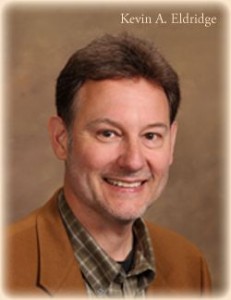 Kevin Eldridge, Ph.D., began working with people who stutter and their families 20 years ago. He received recognition as a Board Recognized Specialist in 1999, and is a past chair of the Specialty Board on Fluency Disorders. Kevin is in private practice working exclusively with people who stutter and their families. Kevin, along with friend and colleague Michael Retzinger, are co-founders of the Logue Academy which offers professional training workshops as well as intensive treatment programs for teens and their parents and adults who stutter. More information can be found at LogueAcademy.com or by emailing Kevin at keldridgephd@gmail.com. Kevin Eldridge, Ph.D., began working with people who stutter and their families 20 years ago. He received recognition as a Board Recognized Specialist in 1999, and is a past chair of the Specialty Board on Fluency Disorders. Kevin is in private practice working exclusively with people who stutter and their families. Kevin, along with friend and colleague Michael Retzinger, are co-founders of the Logue Academy which offers professional training workshops as well as intensive treatment programs for teens and their parents and adults who stutter. More information can be found at LogueAcademy.com or by emailing Kevin at keldridgephd@gmail.com. |
 David Evans, Ph.D., CCC-SLP is an assistant professor in the department of Speech Pathology and Audiology at the University of South Alabama. He conducts research, teaches courses, and provides therapy and clinical supervision in the area of stuttering. He is a person who stutters, a member of the International Fluency Association and ASHA’s Special Interest Group for Fluency and Fluency Disorders, and actively involved in a local chapter of the National Stuttering Association. His research interests include relations between social-emotional factors and speech production. David Evans, Ph.D., CCC-SLP is an assistant professor in the department of Speech Pathology and Audiology at the University of South Alabama. He conducts research, teaches courses, and provides therapy and clinical supervision in the area of stuttering. He is a person who stutters, a member of the International Fluency Association and ASHA’s Special Interest Group for Fluency and Fluency Disorders, and actively involved in a local chapter of the National Stuttering Association. His research interests include relations between social-emotional factors and speech production. |
 Dr. Susan Felsenfeld has been an academic and clinical educator since 1990. Her research has focused on identifying etiological factors that increase the risk of developmental speech disorders, particularly stuttering. Dr. Felsenfeld is a member of the International Fluency Association and ASHA’s Special Interest Group for Fluency and Fluency Disorders. She is currently a Clinical faculty member at the State University of New York at Buffalo. Dr. Susan Felsenfeld has been an academic and clinical educator since 1990. Her research has focused on identifying etiological factors that increase the risk of developmental speech disorders, particularly stuttering. Dr. Felsenfeld is a member of the International Fluency Association and ASHA’s Special Interest Group for Fluency and Fluency Disorders. She is currently a Clinical faculty member at the State University of New York at Buffalo. |
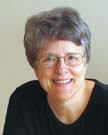 Judith Kuster M.S. in speech-language pathology and M.S. in counseling, is an ASHA Fellow and emeritus professor of Communication Disorders at Minnesota State University, Mankato. She is the webmaster for the Stuttering Home Page (http://www.mnsu.edu/comdis/kuster/stutter.html) and is a member of the ASHA Special Interest Group #4: Fluency and Fluency Disorders. She is the recipient of the ASHF DiCarlo Award for Outstanding Clinical Achievement, the 2003 Distinguished Contributor Award from the International Fluency Association, a 2007 Outstanding Contribution Award from the International Stuttering Association, the 2008 ASHA Distinguished Contributor Award, and in 2009 was named to the National Stuttering Association’s Hall of Fame. Judith Kuster M.S. in speech-language pathology and M.S. in counseling, is an ASHA Fellow and emeritus professor of Communication Disorders at Minnesota State University, Mankato. She is the webmaster for the Stuttering Home Page (http://www.mnsu.edu/comdis/kuster/stutter.html) and is a member of the ASHA Special Interest Group #4: Fluency and Fluency Disorders. She is the recipient of the ASHF DiCarlo Award for Outstanding Clinical Achievement, the 2003 Distinguished Contributor Award from the International Fluency Association, a 2007 Outstanding Contribution Award from the International Stuttering Association, the 2008 ASHA Distinguished Contributor Award, and in 2009 was named to the National Stuttering Association’s Hall of Fame. |
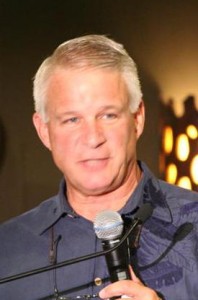 Walt Manning is a professor and Associate Dean in the School of Audiology and Speech-Language Pathology at The University of Memphis. He teaches courses in fluency disorders and evaluating research. He has published more than 100 articles in a variety of professional journals and has presented on many occasions to regional, national, and international audiences. He is an editorial consultant for several professional journals and ad hoc associate editor for the American Journal of Speech-Language Pathology. Since 1997 he has been an Associate Editor for The Journal of Fluency Disorders. He is a Board Recognized Specialist in Fluency Disorders, a fellow of ASHA and has received the honors of the Tennessee Association of Audiologists and Speech-Language Pathologists. The third edition of his text Clinical Decision Making in Fluency Disorders was published by Delmar|Cengage Learning in 2010. Walt Manning is a professor and Associate Dean in the School of Audiology and Speech-Language Pathology at The University of Memphis. He teaches courses in fluency disorders and evaluating research. He has published more than 100 articles in a variety of professional journals and has presented on many occasions to regional, national, and international audiences. He is an editorial consultant for several professional journals and ad hoc associate editor for the American Journal of Speech-Language Pathology. Since 1997 he has been an Associate Editor for The Journal of Fluency Disorders. He is a Board Recognized Specialist in Fluency Disorders, a fellow of ASHA and has received the honors of the Tennessee Association of Audiologists and Speech-Language Pathologists. The third edition of his text Clinical Decision Making in Fluency Disorders was published by Delmar|Cengage Learning in 2010. |
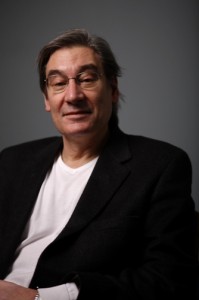 Professor Mark Onslow is the Foundation Director of the Australian Stuttering Research Centre at the Faculty of Health Sciences, The University of Sydney. His background is speech pathology, in which field he holds a Bachelor of Applied Science, Master of Applied Science, and a Doctorate. During the period 2004-2008 he was a Principal Research Fellow of the National Health and Medical Research Council of Australia, being the only speech pathologist to have received that distinction. In addition to his academic appointment at The University of Sydney, he is an Honorary Professor at the University of Queensland, Australia, Adjunct Professor at the University of Canterbury, New Zealand, and Retained Professor at the National Taipei College of Nursing, Taiwan, during 2008-2009. Professor Onslow leads a team that has been awarded multi-million dollar research grants from the National Health and Medical Research Council to develop treatments for stuttering. Professor Onslow’s research interests are the epidemiology of early stuttering in preschoolers, mental health of those who stutter, measurement of stuttering, and the nature and treatment of stuttering. Recently, work has begun at the Centre to adapt successful stuttering treatments for the internet. He has taught university courses in stuttering management in three countries. He is a member of the international Lidcombe Program Trainers Consortium and is in constant demand as a speaker internationally. Professor Onslow has authored 270 publications dealing with stuttering including journal articles, books and chapters. Professor Mark Onslow is the Foundation Director of the Australian Stuttering Research Centre at the Faculty of Health Sciences, The University of Sydney. His background is speech pathology, in which field he holds a Bachelor of Applied Science, Master of Applied Science, and a Doctorate. During the period 2004-2008 he was a Principal Research Fellow of the National Health and Medical Research Council of Australia, being the only speech pathologist to have received that distinction. In addition to his academic appointment at The University of Sydney, he is an Honorary Professor at the University of Queensland, Australia, Adjunct Professor at the University of Canterbury, New Zealand, and Retained Professor at the National Taipei College of Nursing, Taiwan, during 2008-2009. Professor Onslow leads a team that has been awarded multi-million dollar research grants from the National Health and Medical Research Council to develop treatments for stuttering. Professor Onslow’s research interests are the epidemiology of early stuttering in preschoolers, mental health of those who stutter, measurement of stuttering, and the nature and treatment of stuttering. Recently, work has begun at the Centre to adapt successful stuttering treatments for the internet. He has taught university courses in stuttering management in three countries. He is a member of the international Lidcombe Program Trainers Consortium and is in constant demand as a speaker internationally. Professor Onslow has authored 270 publications dealing with stuttering including journal articles, books and chapters. |
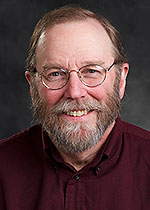 Charlie Osborne is a clinical associate professor at the University of Wisconsin – Stevens Point. He teaches the Fluency Disorders class and supervises graduate students conducting fluency therapy with children & their families and adults. He has worked with persons who stutter for over 25 years. Charlie Osborne is a clinical associate professor at the University of Wisconsin – Stevens Point. He teaches the Fluency Disorders class and supervises graduate students conducting fluency therapy with children & their families and adults. He has worked with persons who stutter for over 25 years. |
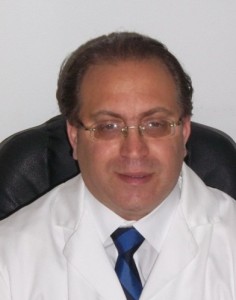 Roy Sarfati, M.S.,CCC-SLP, is a researcher and inventor of various treatment protocols for stuttering and other communication disorders, the Apex Speech Care Systems. Presently, he is the Clinical Director of the Centers for Communication Disorders located in South Florida. Mr. Sarfati personally struggled with stuttering and overcame it. His dedication and support to people who stutter and families with children who stutter is an ongoing mission. Roy Sarfati, M.S.,CCC-SLP, is a researcher and inventor of various treatment protocols for stuttering and other communication disorders, the Apex Speech Care Systems. Presently, he is the Clinical Director of the Centers for Communication Disorders located in South Florida. Mr. Sarfati personally struggled with stuttering and overcame it. His dedication and support to people who stutter and families with children who stutter is an ongoing mission. |
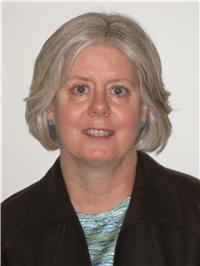 Jean Sawyer, Ph.D., CCC-SLP is an associate professor in Communication Sciences and Disorders at Illinois State University. Dr. Sawyer teaches graduate and undergraduate courses in fluency, and serves as a consultant to speech-language pathologists who treat stuttering. She is a member and former co-chapter leader of the National Stuttering Association. Her research is in the characteristics of disfluencies, the distribution of disfluencies in stuttered speech, and treatment efficacy. Jean Sawyer, Ph.D., CCC-SLP is an associate professor in Communication Sciences and Disorders at Illinois State University. Dr. Sawyer teaches graduate and undergraduate courses in fluency, and serves as a consultant to speech-language pathologists who treat stuttering. She is a member and former co-chapter leader of the National Stuttering Association. Her research is in the characteristics of disfluencies, the distribution of disfluencies in stuttered speech, and treatment efficacy. |
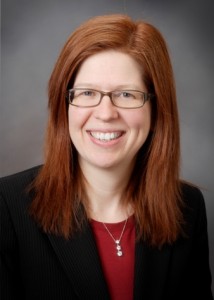 Kathleen Scaler Scott is a practicing speech-language pathologist, Board Recognized Fluency Specialist, and Assistant Professor of Speech-Language Pathology at Misericordia University. Her research interests are largely in cluttering and atypical disfluencies. She is the co-editor of Cluttering: A Handbook of Research, Intervention, and Education (Psychology Press, 2011) and co-author of Managing Cluttering: A Comprehensive Guidebook of Activities (Pro-Ed, Inc., 2013), both with Dr. David Ward. Dr. Scaler Scott is the author of numerous publications and has spoken nationally and internationally on the topics of fluency and social pragmatic disorders. She was the first Coordinator of the International Cluttering Association. Kathleen Scaler Scott is a practicing speech-language pathologist, Board Recognized Fluency Specialist, and Assistant Professor of Speech-Language Pathology at Misericordia University. Her research interests are largely in cluttering and atypical disfluencies. She is the co-editor of Cluttering: A Handbook of Research, Intervention, and Education (Psychology Press, 2011) and co-author of Managing Cluttering: A Comprehensive Guidebook of Activities (Pro-Ed, Inc., 2013), both with Dr. David Ward. Dr. Scaler Scott is the author of numerous publications and has spoken nationally and internationally on the topics of fluency and social pragmatic disorders. She was the first Coordinator of the International Cluttering Association. |
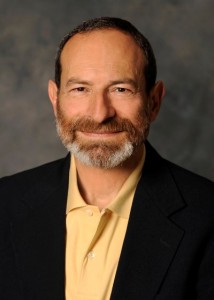 David A. Shapiro, Ph.D., CCC-SLP, ASHA Fellow, Board Recognized Fluency Specialist, is the Robert Lee Madison Distinguished Professor of Communication Sciences and Disorders at Western Carolina University (Cullowhee, North Carolina, USA). In his fourth decade of providing clinical services for people who stutter and their families, Dr. Shapiro is a regular presenter at conferences and has taught workshops, provided clinical service, and conducted research in six continents. His book, Stuttering Intervention: A Collaborative Journey to Fluency Freedom, is in its 2nd edition (2011, PRO-ED) and continues to find a wide international audience. Dr. Shapiro is actively involved in the International Fluency Association (IFA) and International Stuttering Association (ISA), received IFA’s 2006 Award of Distinction for Outstanding Clinician in Dublin, Ireland, and was elected IFA President in 2012. He is a person who stutters, has two young adult children with his wife, Kay, and lives near the Great Smoky Mountains National Park. David A. Shapiro, Ph.D., CCC-SLP, ASHA Fellow, Board Recognized Fluency Specialist, is the Robert Lee Madison Distinguished Professor of Communication Sciences and Disorders at Western Carolina University (Cullowhee, North Carolina, USA). In his fourth decade of providing clinical services for people who stutter and their families, Dr. Shapiro is a regular presenter at conferences and has taught workshops, provided clinical service, and conducted research in six continents. His book, Stuttering Intervention: A Collaborative Journey to Fluency Freedom, is in its 2nd edition (2011, PRO-ED) and continues to find a wide international audience. Dr. Shapiro is actively involved in the International Fluency Association (IFA) and International Stuttering Association (ISA), received IFA’s 2006 Award of Distinction for Outstanding Clinician in Dublin, Ireland, and was elected IFA President in 2012. He is a person who stutters, has two young adult children with his wife, Kay, and lives near the Great Smoky Mountains National Park. |
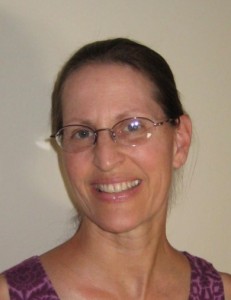 Lynne Shields is a professor of speech-language pathology at Fontbonne University in St. Louis, Missouri, teaching and supervising in the areas of fluency disorders and language disorders. She also works privately with children and adults who stutter and is a board recognized specialist in fluency disorders. Lynne Shields is a professor of speech-language pathology at Fontbonne University in St. Louis, Missouri, teaching and supervising in the areas of fluency disorders and language disorders. She also works privately with children and adults who stutter and is a board recognized specialist in fluency disorders. |
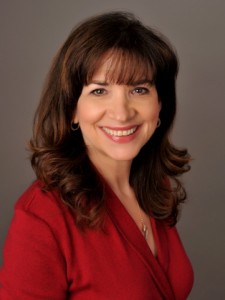 Vivian Sisskin, M.S., CCC-SLP, BRS-FD is a clinical faculty member at the University of Maryland. She is an ASHA Fellow and a Board Recognized Specialist in Fluency Disorders. She served as Coordinator for ASHA’s Special Interest Group 4 (Fluency and Fluency Disorders), and received ASHA’s 2011 Media Champion award. Sisskin served on the Board of Directors of the National Stuttering Association and is currently Vice Chair of the Specialty Board on Fluency Disorders. She is a faculty member for the Stuttering Foundation’s Mid-Atlantic Workshop. Her articles and workshops include principles for effective group therapy and communication strategies for children with autism spectrum disorders. Vivian Sisskin, M.S., CCC-SLP, BRS-FD is a clinical faculty member at the University of Maryland. She is an ASHA Fellow and a Board Recognized Specialist in Fluency Disorders. She served as Coordinator for ASHA’s Special Interest Group 4 (Fluency and Fluency Disorders), and received ASHA’s 2011 Media Champion award. Sisskin served on the Board of Directors of the National Stuttering Association and is currently Vice Chair of the Specialty Board on Fluency Disorders. She is a faculty member for the Stuttering Foundation’s Mid-Atlantic Workshop. Her articles and workshops include principles for effective group therapy and communication strategies for children with autism spectrum disorders. |
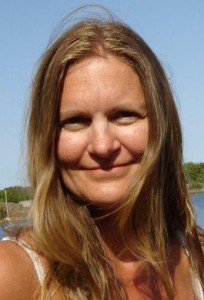 Hilda Sønsterud is a speech and language therapist in Oslo, Norway. She has been working with speech fluency disorders (stuttering and cluttering) since 1998. Currently, she works at a national centre with interdisciplinary expertise in the field of speech, language and communication disorders (Statped, Department of Speech and language disorders).Hilda works primarily with treatment, education and research related to fluency disorders. She runs courses in the field of stuttering and cluttering, and she provides clinical training and practice for SLTs and SLT students. She strongly believes in the necessity for close ties and good collaboration between clinical research and clinical practice, with the ultimate aim of improving treatment for persons with stuttering or cluttering. She is chair of the Meetings- and Conferences committee in the International Fluency Association (IFA), and she represents Norway in the International Cluttering Association (ICA). She also works closely with the Stuttering Association in Norway. Hilda Sønsterud is a speech and language therapist in Oslo, Norway. She has been working with speech fluency disorders (stuttering and cluttering) since 1998. Currently, she works at a national centre with interdisciplinary expertise in the field of speech, language and communication disorders (Statped, Department of Speech and language disorders).Hilda works primarily with treatment, education and research related to fluency disorders. She runs courses in the field of stuttering and cluttering, and she provides clinical training and practice for SLTs and SLT students. She strongly believes in the necessity for close ties and good collaboration between clinical research and clinical practice, with the ultimate aim of improving treatment for persons with stuttering or cluttering. She is chair of the Meetings- and Conferences committee in the International Fluency Association (IFA), and she represents Norway in the International Cluttering Association (ICA). She also works closely with the Stuttering Association in Norway. |
 Anu Subramanian, Ph.D., CCC-SLP is a clinical associate professor at the Dept of Speech, Language and Hearing Sciences at Purdue University. She received her Ph.D. from the University of Illinois at Urbana-Champaign where she studied with Dr. Ehud Yairi. She supervises graduate students in the Birth to Three program, preschool fluency groups, and other pediatric clients. In the last year, she has added school-age clients and adults with fluency disorders to her supervisory experience. Her research interests are in clinical practice in speech and language intervention. Anu Subramanian, Ph.D., CCC-SLP is a clinical associate professor at the Dept of Speech, Language and Hearing Sciences at Purdue University. She received her Ph.D. from the University of Illinois at Urbana-Champaign where she studied with Dr. Ehud Yairi. She supervises graduate students in the Birth to Three program, preschool fluency groups, and other pediatric clients. In the last year, she has added school-age clients and adults with fluency disorders to her supervisory experience. Her research interests are in clinical practice in speech and language intervention. |
 Dale F. Williams, Ph.D., CCC-SLP, BRS-FD is a Professor of Communication Sciences and Disorders and Director of the Fluency Clinic at Florida Atlantic University. His publications include the book Stuttering Recovery: Personal and Empirical Perspectives (Psychology Press). Dr. Williams has coordinated the Boca Raton chapter of the NSA since 1996. Dale F. Williams, Ph.D., CCC-SLP, BRS-FD is a Professor of Communication Sciences and Disorders and Director of the Fluency Clinic at Florida Atlantic University. His publications include the book Stuttering Recovery: Personal and Empirical Perspectives (Psychology Press). Dr. Williams has coordinated the Boca Raton chapter of the NSA since 1996. |
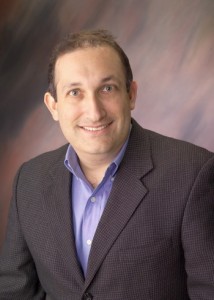 J. Scott Yaruss, PhD, CCC-SLP, BRS-FD, ASHA Fellow, is an associate professor and director of the Master’s Degree programs in Speech-Language Pathology at the University of Pittsburgh. His research examines methods for evaluating treatment outcomes in people who stutter. He has published more than 50 papers in peer-reviewed journals and nearly 100 other articles, papers, and chapters on stuttering. He is author, co-author, or editor of several booklets, books, and brochures on stuttering, including the Overall Assessment of the Speaker’s Experience of Stuttering (OASES; Pearson) as well as School-age Stuttering Therapy: A Practical Guide and the Minimizing Bullying for Children Who Stutter series (Stuttering Therapy Resources, Inc.). J. Scott Yaruss, PhD, CCC-SLP, BRS-FD, ASHA Fellow, is an associate professor and director of the Master’s Degree programs in Speech-Language Pathology at the University of Pittsburgh. His research examines methods for evaluating treatment outcomes in people who stutter. He has published more than 50 papers in peer-reviewed journals and nearly 100 other articles, papers, and chapters on stuttering. He is author, co-author, or editor of several booklets, books, and brochures on stuttering, including the Overall Assessment of the Speaker’s Experience of Stuttering (OASES; Pearson) as well as School-age Stuttering Therapy: A Practical Guide and the Minimizing Bullying for Children Who Stutter series (Stuttering Therapy Resources, Inc.). |
![]()
